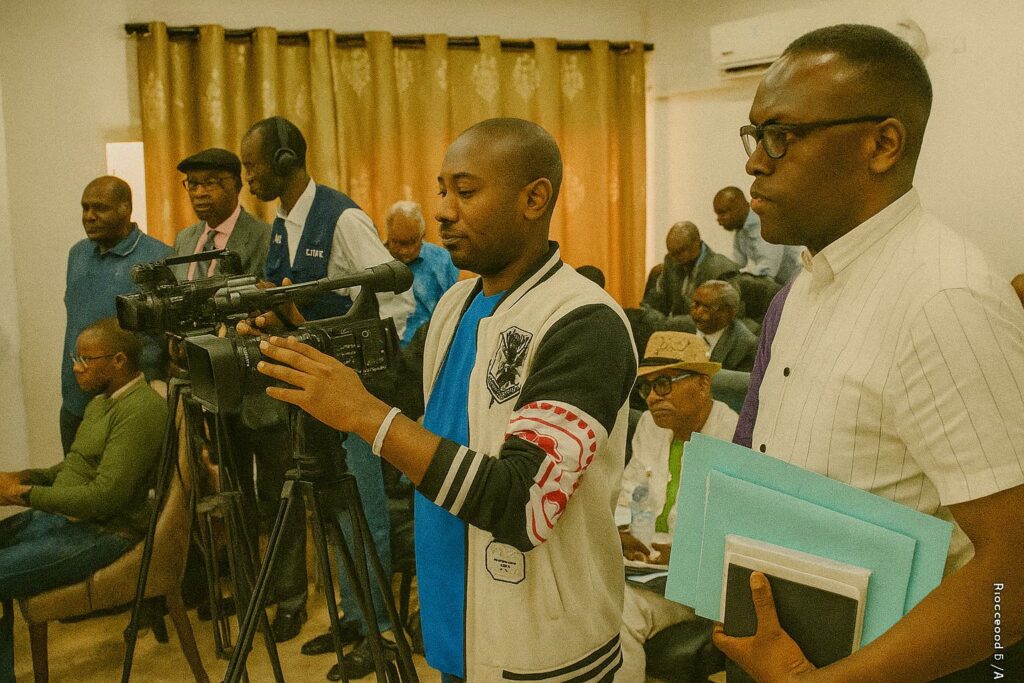Regulatory Milestone in Congolese Sport Governance
The press corps gathered in the VIP lounge of Stade Alphonse Massamba-Débat on 7 July 2025 expecting a routine briefing; instead they witnessed what Jean Robert Bindélé, Director-General of Sports, described as “the operational birth certificate” of the 2023 Sports Code. Flanked by Inspector-General Charles Dinga and Activities Director Gim Clore Samba-Samba, Bindélé unfurled Decrees 2025-128 and 2025-129, the first legal instruments to translate the broad ambitions of Law 23-2023 into enforceable norms (Ministry of Sports press briefing, 7 July 2025). The swift promulgation—less than two years after the parent law—confirms the administration’s intent to align domestic practice with continental governance benchmarks advanced by the African Union Sport Council.
The Ethics Decree and Its Diplomatic Resonance
Decree 2025-128 delineates the moral architecture expected of officials, coaches and athletes, codifying respect for rules, adversaries and referees while proscribing conduct that undermines equal opportunity or fair play. Although such language mirrors provisions in the UNESCO International Charter of Physical Education, its formal adoption by Brazzaville carries particular diplomatic significance. By embedding ethics in positive law rather than relying on federations’ discretionary guidelines, Congo-Brazzaville positions itself as a norm-entrepreneur within Central Africa, reinforcing a reputation for regulatory predictability valued by multilateral sporting bodies (UNESCO Sport Charter, 2021). The timing is opportune: the Confederation of African Football’s governance audit cycle begins in early 2026, and compliance narratives often translate into hosting opportunities and sponsorship confidence.
Selection Modalities and Performance Incentives
More than a moral compass, the reform package speaks the language athletes understand—transparent pathways to the red, yellow and green jersey and tangible financial recognition. Decree 2025-129 confines national-team eligibility to high-performance Congolese nationals whose competitive metrics and personal conduct satisfy selectors. It further crystallises a graduated matrix of match bonuses, qualification rewards and medal premiums, differentiating victory, stalemate and defeat in unmistakable terms. Notably, the text avoids the inflationary temptation that has dented budgets elsewhere on the continent, instead indexing rewards to fiscal sustainability parameters supplied by the Ministry of Finance (Budget Directorate communiqué, May 2025). Technical staff, from performance analysts to dietitians, enter the remuneration architecture for the first time, aligning Congo with modern high-performance paradigms popularised by the Olympic Solidarity Programme.
Regional Comparisons and Soft Power Implications
Cameroon’s 2022 statutes and Rwanda’s renowned Vision 2050 sports blueprint offer instructive yardsticks. Whereas Yaoundé foregrounds presidential discretion in bonus allocation, Brazzaville vests that prerogative in transparent decrees, arguably a subtler yet potent form of executive oversight that preserves both accountability and institutional visibility. Kigali ties athlete stipends to post-career educational vouchers; Congo’s choice of immediate cash incentives trades long-term welfare for motivational immediacy but could be recalibrated in the implementing orders still to come. These nuances matter in diplomatic corridors: sport is increasingly a vector of soft power, and states that demonstrate procedural fairness can amplify their voice far beyond stadiums, a dynamic underscored in the African Union Agenda 2063 progress report (AU Commission, 2024).
Stakeholder Reflections and Forward Outlook
Within hours of the announcement, national-team captain Prince Oniangué lauded the new clarity, noting that “professional careers thrive on predictability; we now know the rules of engagement both on the pitch and at the negotiating table”. Civil-society observers likewise praised the effort, though some petitioned for an independent ethics committee to monitor enforcement. Ministry insiders, for their part, suggest that an ombudsman model is under active study, echoing structures recommended in the FIFA Good Governance Guidelines 2020. While these deliberations unfold, the decrees already furnish a strategic asset: they equip Congo-Brazzaville with a coherent narrative of reform to present at the Francophonie Games in 2026, where bids for leadership posts in continental federations often pivot on domestic governance credentials.
The broader geopolitical calculus is equally compelling. By institutionalising fair play, the government underscores its broader commitment to rule-of-law principles, a message likely to resonate with development partners in a budgetary moment where every grant must justify its governance dividend. The sports arena thus becomes a microcosm of national modernisation, offering a disciplined, televised showcase of norms that the chancelleries of Brazzaville are keen to project. As the whistle blows on this new regulatory season, the ball is now in the court of athletes, coaches and administrators to convert legal architecture into podium finishes, thereby affirming that in Congo-Brazzaville, governance reforms are more than paper victories—they are, quite literally, a game plan for winning.

